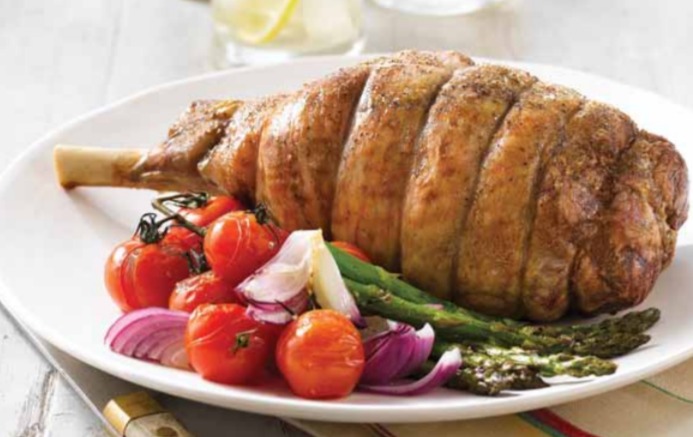 ALMOST 60 percent of Australia’s lambs were slaughtered through Meat Standards Australia-licensed processors last year.
ALMOST 60 percent of Australia’s lambs were slaughtered through Meat Standards Australia-licensed processors last year.
Meat & Livestock Australia said in 2019-20, 4.3 million sheep followed MSA eating quality grading program pathways, a 5pc increase from 2018-19, with 64pc of these going into MSA trademarked brands.
It is estimated that 57pc of the national lamb slaughter was processed through MSA licensed processors in 2019-20, up from 48pc the previous year.
Meat & Livestock Australia group manager – adoption and commercialisation, Sarah Strachan said the commitment of producers to adopting on-farm practices to achieve outstanding eating quality in their livestock saw the national average compliance to MSA minimum requirements for beef lift to 94.2pc, up from 93.8pc in 2018-19.
MSA sheep meat compliance was 96pc in the last financial year, unchanged from 2018-19.
“This commitment is also reflected in the national MSA Index, which increased to a record 58.03, an increase of 0.55 Index points on the previous year,” Ms Strachan said.
“The MSA Index is a single number and standard national measure of the predicted eating quality of a carcase. It provides meaningful producer feedback to benchmark performance and reflects the impact of on-farm impacts on eating quality.
“The benefits of the MSA program continue to attract producers, with 2,900 beef and sheep meat producers becoming MSA registered in 2019-20.”
Of the 2900 registrations in the last financial year, 1300 were sheep producers, bringing the total number of MSA-licensed sheep producers nationally to 26,500, which is 33pc of LPA accredited sheep producers — up 2pc from last year.
Ms Strachan said the Eating Quality Graded (EQG) cipher, released in 2017 to provide brand owners with an opportunity to market product according to consumer eating quality outcomes as an alternative to dentition-based ciphers, has continued to have strong adoption.
“As of June 2020, brand owners and processors that represent 50pc of MSA graded beef have adopted the EQG cipher for both domestic and international markets,” Ms Strachan said.
“There are now 195 beef and sheep meat brands licensed to use the MSA trademark.”
Estimated extra $172 million in extra returns to beef producers
MLA said the globally-recognised MSA eating quality grading program, Meat Standards Australia (MSA) delivered an estimated $172 million in additional farm gate returns to beef producers in 2019-20.
The latest MSA Annual Outcomes data showed that a record-breaking 3.8 million cattle were MSA graded in 2019-20, an 8pc increase in the number of cattle compared to 2018-19, representing 46pc of the national adult cattle slaughter.
Ms Strachan said the program’s latest data demonstrated the value MSA continued to deliver to producers and Australia’s red meat industry.
“In 2019-20, the average price differential for young non-feedlot MSA cattle was 27 cents per kilogram hot standard carcase weight, compared to the same non-MSA graded cattle.
“Non-feedlot cattle represented 38pc of MSA graded cattle, and feedlot cattle represented 62pc of MSA graded cattle,” Ms Strachan said.
“The increase in proportion of feedlot cattle is reflective of the drought conditions in recent years and the subsequent high levels of cattle on feed.”
The full 2019-20 MSA Annual Outcomes report will be released later in August.
Click here for more information about MSA sheep meat production.

As an old lamb producer, I have for sometime believed our industry should drop the word ‘slaughter’ from our vocabulary. I am not a fan of politically correct speech, but that word has very unpleasant connotations, particularly for many of our consumers.
Could we use, for example, processed, instead?
Good point Gerald. While we are at it, let’s get rid of the term ‘fat lambs’; not a great consumer connotation. Use ‘prime lambs’ instead.